I got this more as something you can chuck in a bag (fits nicely, smaller than my 13" laptop, if thicker) and jam with or doodle ideas outside/on the go - think old Casiotone keyboards, just with a bit more functionality.
I wish AKAI had put a little effort into the sounds (it's the same old miditones familiar from every other beginner keyboard since at least the 80's), but being able to change the attack and release, in addition to the onboard reverb and chorus really save a lot and bring a lot of welcome mileage to the sounds. Those really save this keyboard as a keyboard.
Build quality seems fair, although the ball the modulation joystick is made out of this weird, scratchy foam that honestly looks like it's meant to stay in a prototype. I wish they'd gone with a 1/4" jack for the headphone jack, seems like a weird decision to go with 3.5mm jack on music equipment in this day and age.
The keys are fine, they can seem a bit stiff if you're used to other minikeys, but personally I like these. The velocity settings are fine and get better if you twiddle with them a bit to suit your preference, but out of all the minikeys I've tried these have a great response. If you can stand mini keys this'll do just nicely, they're quite plastic, but that's to be expected.
Overall, for a mini keyboard, it's good for what it is. If you have no need for the onboard sounds, definitely go for the regular MPK mini as it has better knobs (infinite vs. the 270° ones this has because of the features) and no real estate is lost to the speaker - plus you get other colors! I wish these were available in the different colors the regular MPK mini - I really don't like the color of this thing and I'm pretty sure I'm gonna paint the plastic case.
This thing would be great if AKAI gave the possibility to actually change the sounds or just went for better sounds. There's a lot of very usable, good sounds, but it's not exactly going to blow your mind. If they'd slap a sequencer or something on this thing to quickly whip up some ideas (chords + lead + drums) remotely, this would be a really awesome little beast. Maybe some day.


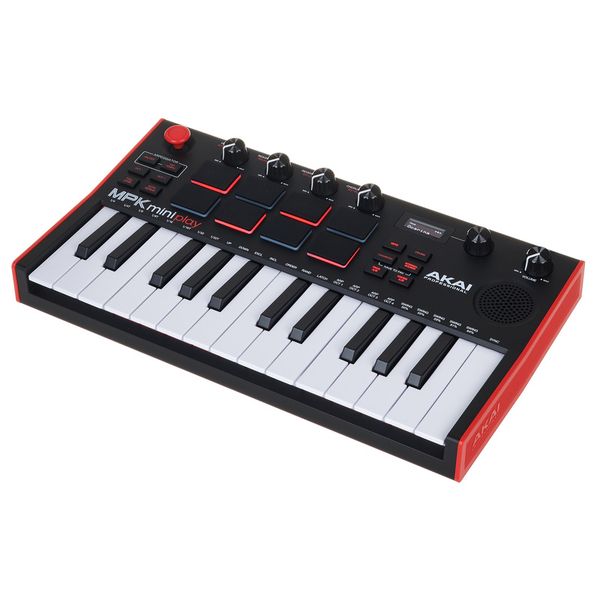
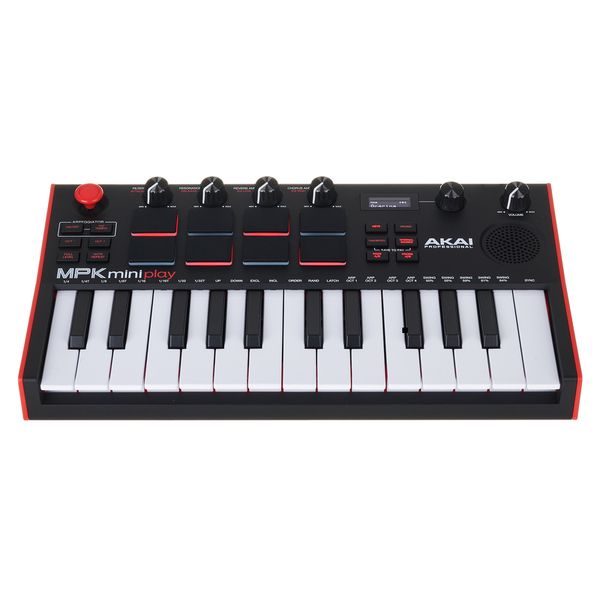
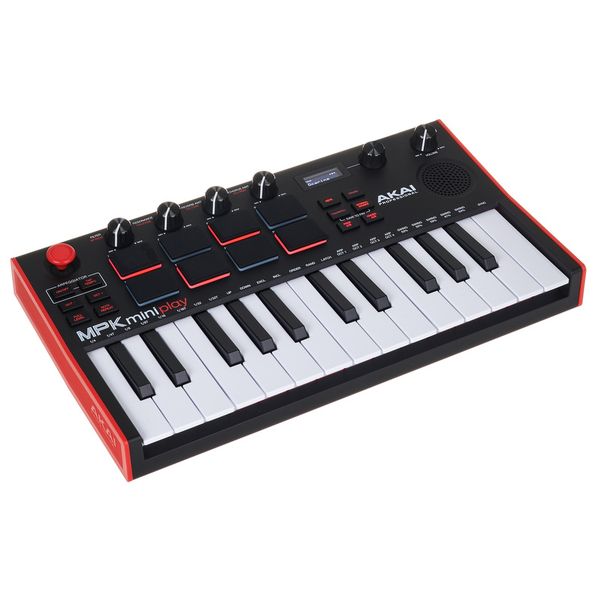
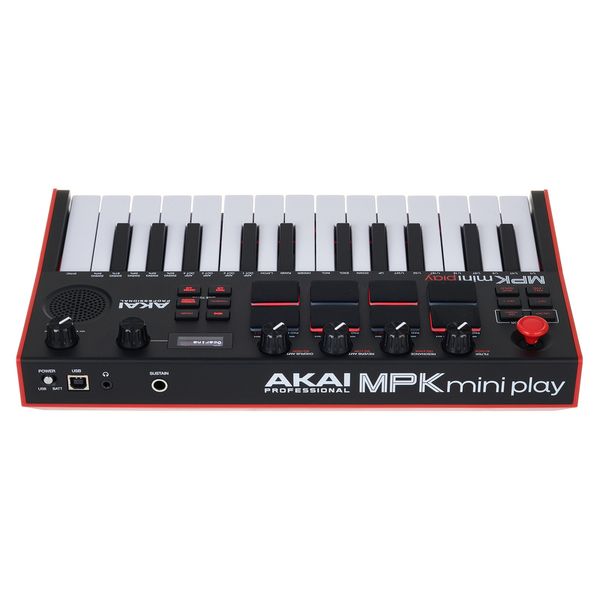
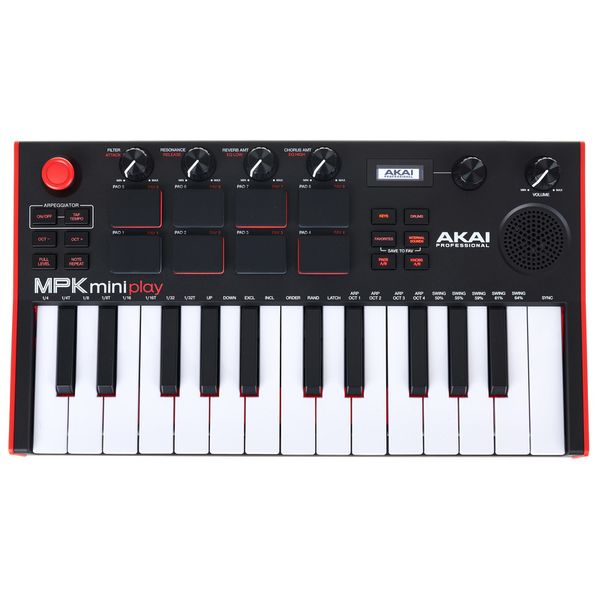
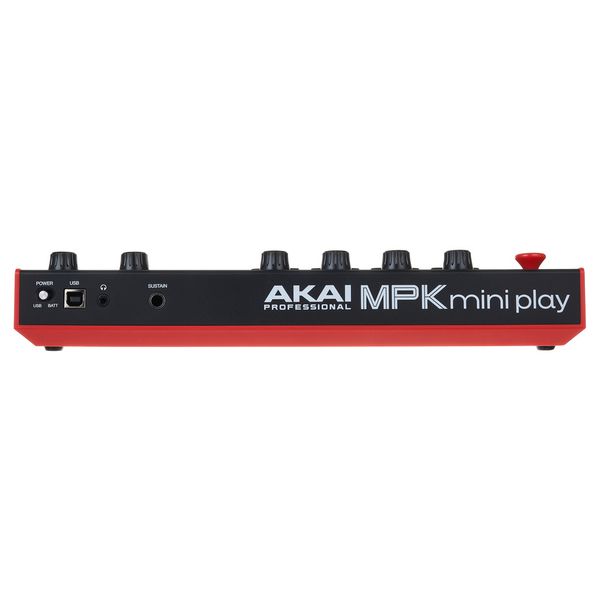
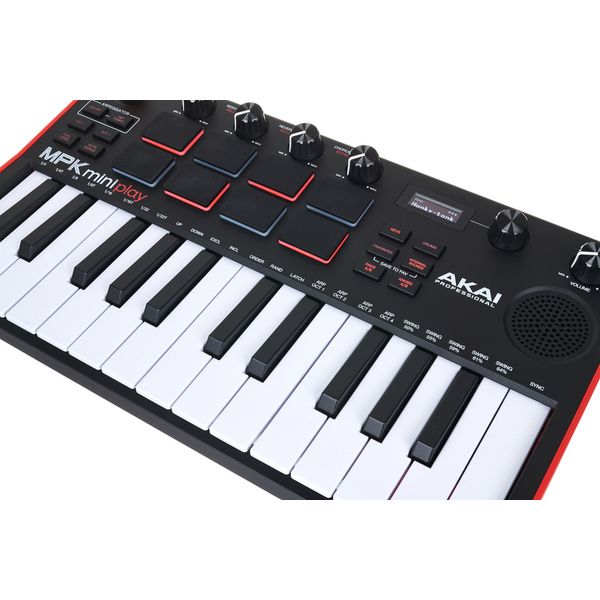
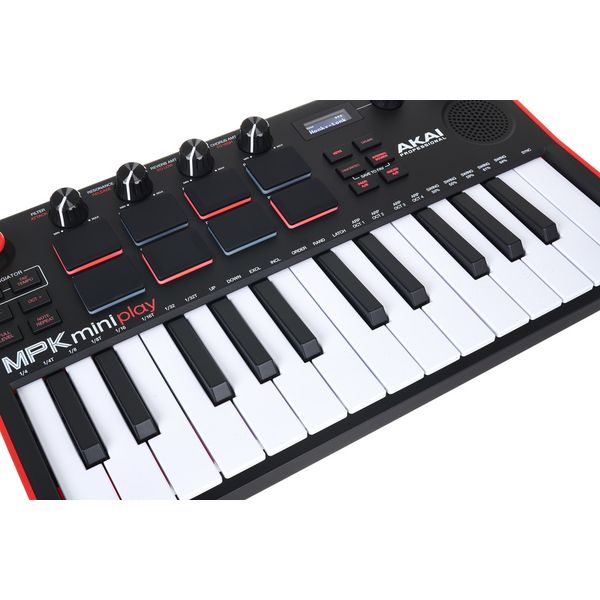
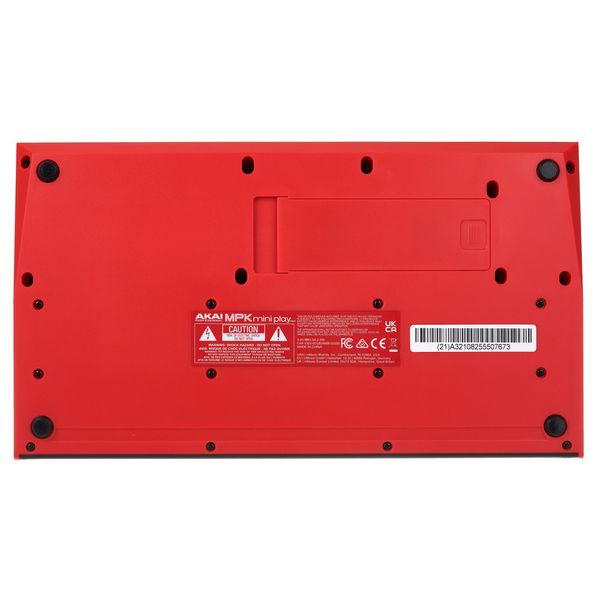
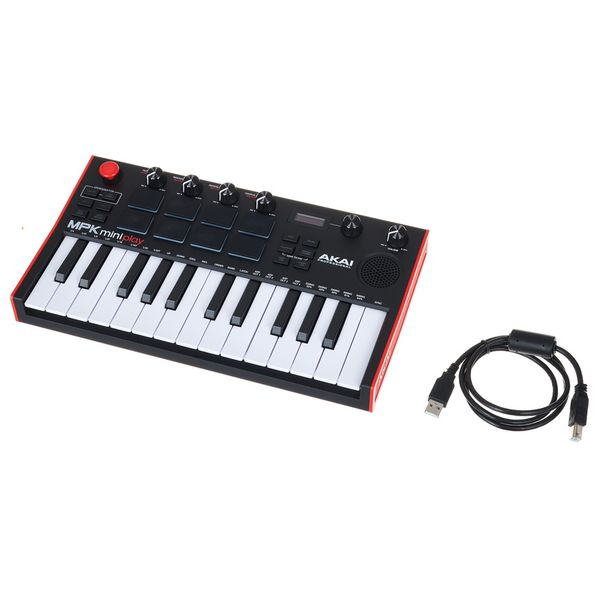












)
)
)
